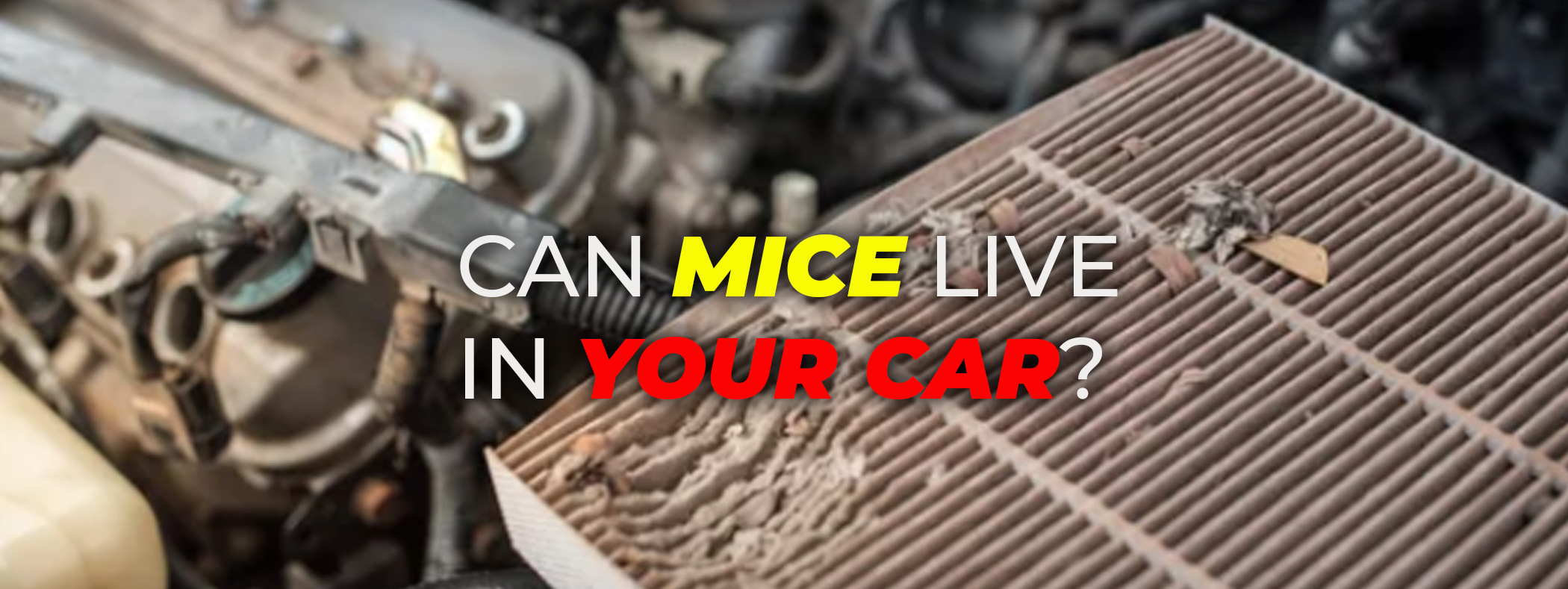
An infestation of mice is a homeowner’s nightmare. Mice can get in through extremely small openings. Once inside, they can cause extensive property damage and potentially spread disease. Some people do not realize that mice can live in their cars as well and may not recognize an infestation right away. However, an infestation of mice in your vehicle can occur and cause the same sorts of problems as a home infestation. If you find signs of a vehicular infestation, you should call pest control in Brampton right away.
Why Do Mice Get Into Your Vehicle?
In the fall and winter, mice look for shelter to get out of the cold, rain, and snow. A vehicle offers them the necessary protection, and if they can also find food, water, and nesting material inside, that makes your car extra attractive as a new home for a mouse.
Mice may be more likely to take up residence in a vehicle that is in storage or spends a lot of time parked. However, don’t assume that you are safe just because you drive your vehicle on a daily basis. Some mice become stowaways, hiding inside frequently used vehicles and going along for the ride.
How Do Mice Get Into Your Vehicle?
Mice typically crawl up into the engine of a vehicle at first. While some may stay there and make a nest, others use the engine as a way to get to other areas of the vehicle. Steering columns, pedal shafts, air vents, and holes around cables all provide potential entry points for mice. Mice are already small rodents, and nature has equipped them with the ability to compress their bodies so that they can squeeze into openings that seem impossibly small. All a mouse needs to get into your home or car is a hole the size of a dime.
What Damage Can Mice Do Inside Your Vehicle?
In recent years, one of the problems that have risen to prominence with mice in vehicles is that they chew the insulation off the electrical wires, exposing them and creating a possible fire hazard. This is a common mouse behaviour in any case, but it has become worse in recent years with the introduction of soy-based insulation. With the need to produce more environmentally sustainable materials, this type of insulation is favoured for being organic and recyclable. However, it is also attractive to mice because it is plant-based.
Mice can also interfere with the safe operation of your vehicle by making nests or storing food in key mechanical areas of the engine compartment. If a mouse dies inside your car, whether because of the vehicle’s operation or due to natural causes, it can produce a strong and unpleasant odour that can permeate the entire interior.
How Can You Prevent Mice From Getting Into Your Vehicle?
Mice can get into your vehicle without you realizing it right away. However, there are things you can do to prevent this:
- Close All the Openings You Can: You may not be able to close up all the small holes in your car, but you can make sure all the windows, the doors, and the sunroof are completely closed before leaving your vehicle unattended.
- Control Moisture: A heater leak or blocked pollen filter can cause condensation to build up in your vehicle. This can cause a number of problems, including attracting mice to your vehicle with the moisture they need to thrive. Get an inspection to determine the cause of the condensation.
- Keep the Car Clean: Clutter in your vehicle can provide food for a mouse and places to hide. Clear this out regularly and keep the interior clean.
Trust Truly Nolen for Rodent Removal
Mice can get into your car without your knowledge, but you must take immediate action once you discover the problem. Find out more about local rodent removal services from Truly Nolen.